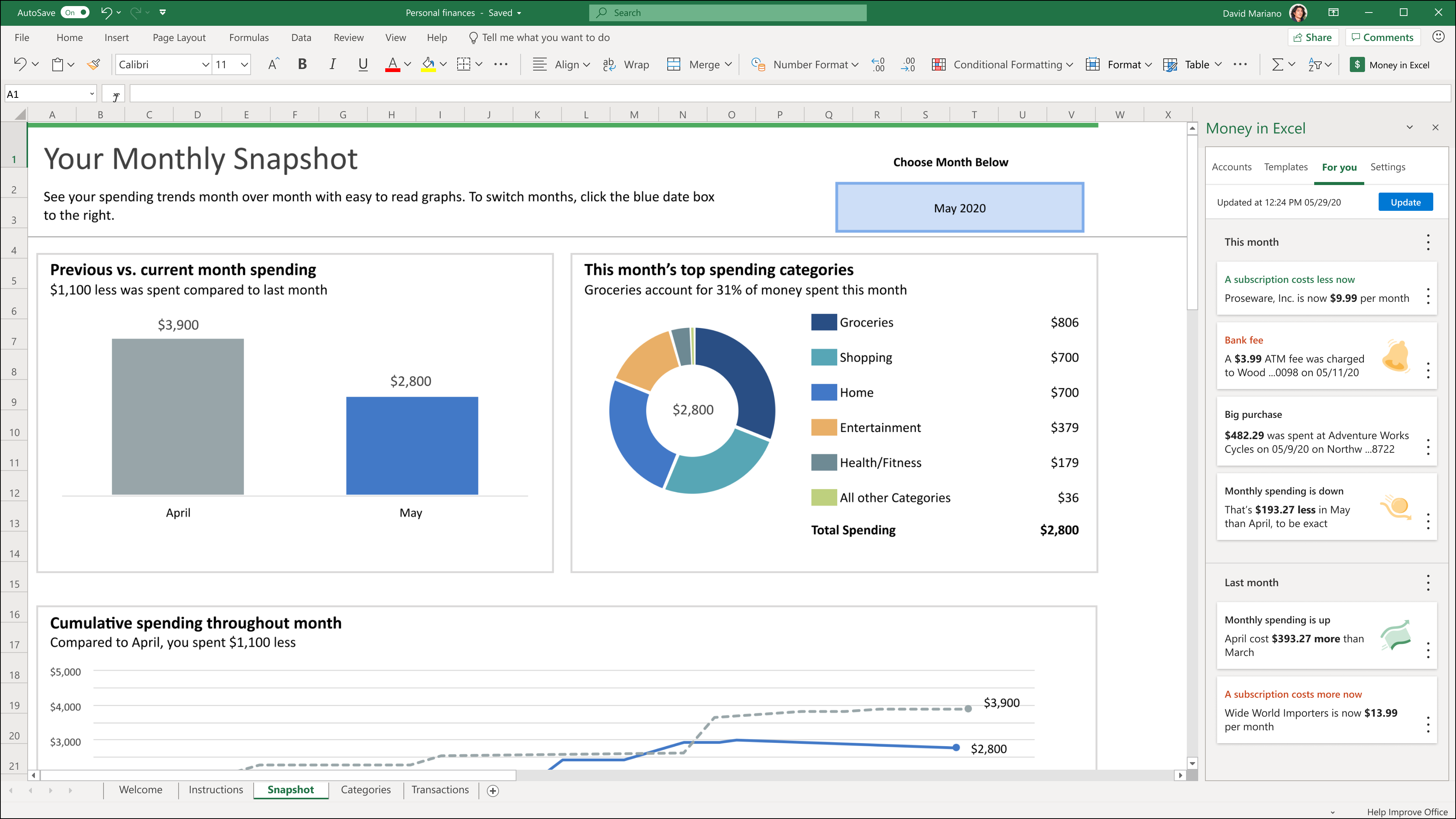Now that Microsoft has gone and pulled the plug on Money, many people are left wondering what to do next. While Microsoft will continue to support Money until January 31, 2011, there is no time like the present to start looking for a replacement. As Microsoft noted when announcing the decision to kill Money, there are a wide variety of companies offering personal financial management tools.
While it will theoretically continue to work for years to come, the online functions such as bill pay and portfolio tracking will most likely cease to function when Microsoft stops supporting them so start looking for a replacement now. By starting to look for Money’s replacement now you will allow yourself time to sample several programs and find one that works for you. Once you have the successor chosen, you will still have time to tweak the new program while you can still use Money. Once you are comfortable with the new program, you can make the switch on your own time frame and not be rushed.
Read also What Your Apps Know About You.
Here is a list of 15 programs that should serve as a worthy replacement to Microsoft Money, and in some cases they may even outperform it. The list contains some programs that work on both PCs and Macs, some are online and some are desktop and some are even free.
Online Programs
- Budgetpulse This free online program has simplicity as it’s mantra. Security isn’t a big concern since you can’t download bank or investment information, so there are no passwords or sensitive info stored on the system. If you are looking for no-frills program that can track your expenses and budget, this program is for you.
- Buxfer Buxfer takes a rather unique approach to financial management software as it has features that allow the management of group finances. If you have roommates that you share expenses with, this may be just the answer. Also, they have a Google Gears functionality that allows them to use Gears to acces your information and then relay it to Buxfer without any of your sensitive data such as account numbers and passwords being stored anywhere on the Buxfer site. As a bonus, besides being free, you can also text transactions to your account.
- ClearCheckbook Offers the basics for free and some more advanced premium features for a small fee. At it’s heart it is a checkbook register that also does some budgeting and comes with a wide range of available reports.
- Mint The most popular of the online programs, Mint seems to do everything that Money does and maybe a bit more. It has a simple design and more of an intuitive feel than some of the other programs, but is an amazingly powerful tool. The one caveat here is that while Mint is free to use, according to their “about”page, they sometimes make money when you act on one of their personalized savings suggestions, although they do claim to “always offer unbiased advice.”
- Money Center This is the software offering from Yodlee, the company which provides the back end for many of the other financial management solutions out there. Great integration with banks and a billpay feature round out the software, which is billed by Yodlee as the most comprehensive online banking solution in the world.
- Mvelopes The online version of the envelope budgeting system promoted by Crown Financial Ministries, Mvelopes offers online bill-pay as well as downloadable account information. The program is well thought out and easy to use, but it comes with a price. Monthly access fees start at $8.
- Thrive Similar to Mint, and free, Thrive does seem to place a bit more emphasis on savings and debt management. Thrive has more of a hip feel to it, if that is possible with accounting software, than most of it’s competitors and bills itself as software for twenty and thirty-somethings. Recently purchased by Money Tree, they do appear to have more long-term stability than some of their competitors.
- Wesabe More of a community oriented application than most, they are also one of the oldest web-based offerings. Like Mint and Thrive, they also offer financial tips and advice, and the large user base is available for questions and sharing tips and tricks. That user base is what sets them apart from most of the others on this list because the form a vocal and passionate community, so there is a huge pool of knowledge and help out there for the asking. Unlike most of the other web-based applications on this list, Wesabe allows for the creation of cash accounts as well as for manually entering transactions.
Desktop Programs
- AceMoney Has most of what you would expect in a desktop program including connectivity, budgeting and portfolio tracking in one convenient $30 package. Available in Linux, Mac and Windows versions, AceMoney also features a host of supported languages as well. Currently when you purchase AceMoney, you receive free upgrades for life.
- GNUCash An open source program, GNU Cash offers a host of features including true double-entry accounting. Capable of running your personal finances as well as small business accounting as well. Due to being open source, there are plenty of add-ons and modules available to customize the program beyond what is included with GNU Cash. Has a small but devoted following that is starting to grow. The interface appears a bit clunky and there is a bit of a learning curve, but it is probably the most powerful of the programs on this list. Being free doesn’t hurt, either.
- Moneydance A robust program that can go toe-to-toe with Microsoft Money. It boasts an impressive array of features such as investment tracking and built-in reports. It is also available for Windows, Mac and Linux users. Like Money, Moneydance will require periodic upgrades, so the $39 you start out paying may not be representative of the long-term cost of using the program.
- Quicken Many Money users are familiar with Quicken as they probably spent some time in a store with a copy of each program in their hands. Quicken’s interface is a bit clunkier than Money, but it is a formidable application. Already the most popular personal finance software on the market, it’s prospects aren’t getting any dimmer now that Money is gone. Due to it’s popularity, Quicken is readily available for purchase most everywhere and prices start at around $20. Like Money, Quicken will eventually force you to upgrade or lose functionality of key features. Many users report maddening experiences with customer support, so be prepared. Like most of the other desktop programs, Quicken in available for Mac and Windows..
- YNAB More of a check book register and budgeting kind of program, YNAB offers no investment tracking component. But for those people who are really serious about budgeting, this tops the other desktop applications in that regard, and probably only Mvelopes is equal to it on this list. Also like Mvelopes, YNAB is based not just on accounting software but on a money management system developed by it’s founder. YNAB Pro costs $49.95 and comes with a free book and some Excel templates. Support from YNAB Basic ends this year, although you can still purchase it for $24.95. YNAB is currently only available for Windows but they are working on a Mac version that is due out in a few months.
Mac Only
- iBank At $59.95, it is the most expensive software on this list. It may also be the best piece of software on this list. But since it is Mac only, most of the computing world has never heard of it. With a feature list that rivals any of the Windows programs, it even includes multi-currency transfer support and will shortly offer tight integration with the iPhone.
- Moneywell If you are a Mac-using fan of envelope budgeting systems this program is for you. While it doesn’t have the bells and whistles of iBank, it is designed with an eye on budgeting and tracking expenses and it keeps everything right on the surface where you can easily access it without having to wade through nuerous sub-menus to find it.
Does one of these programs outperform the others? Which one is right for you? That completely depends on what you are looking for. Envelope budgeters will be looking for soemthing different from investment wizards, who will be looking for something different from household managers. The best thing to do is try a few of them out. All but one of the online options are free, and the rest of the programs should offer some sort of a free trial.









